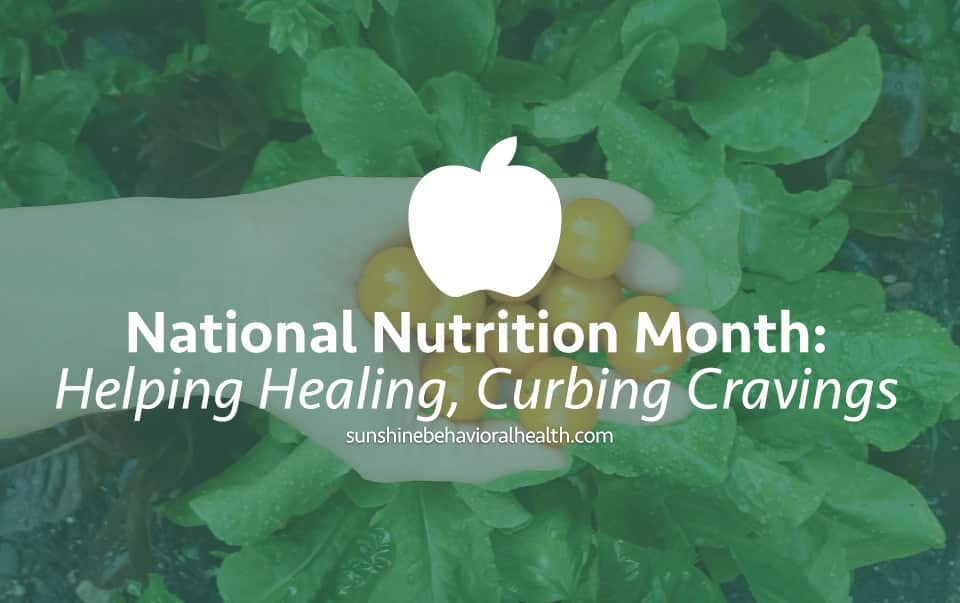
National Nutrition Month: Good Nutrition Helps in Healing and Curbs Cravings
Good nutrition is essential for good health. Individuals who have substance use disorders (SUDs) tend to have limited or unhealthy diets, putting them at risk for malnutrition. That can result from drug-seeking behaviors. Vitamin and mineral deficiencies can also fuel them, thereby interfering with recovery from substance use disorders. Alcohol use disorder and drug use disorder can cause muscular weakness (myopathy), reduced bone mass (osteopenia and osteoporosis), as well as anxiety and depression. Because poor nutrition impacts physical and psychological health, it can make it harder for people with SUDs to resist drugs and/or alcohol. A person in recovery is more likely to relapse when their eating habits are poor. Addiction to drugs and alcohol can make them forget to eat regularly. Hunger cues in turn may be mistaken for a drug craving. A nutritious meal or snack may nip the discomfort in the bud. Regular mealtimes will help ease some of the discomforts of withdrawal and adjustments to an alcohol- and/or drug-free lifestyle. At first glance, it may seem odd to consider a nutritionist or dietitian as an important part of a person’s recovery team, but they can help devise a meal plan that will be balanced and ensure the right vitamins and minerals are included to help fuel and heal the body. A healthy diet full of fruits, vegetables, protein, and complex carbohydrates and low on sugar and fat may, in addition to healing the body, also make it easier to achieve sobriety. Sources ncbi.nlm.nih.gov – The Importance of Nutrition in Aiding Recovery from Substance Use Disorders: A Review sunshinebehavioralhealth.com – How to Prevent Addiction Relapse medlineplus.gov – Substance Use Recovery and Diet sunshinebehavioralhealth.com – A Guide to Healing in RecoveryA Message From Our CEO
Medical disclaimer:
Sunshine Behavioral Health strives to help people who are facing substance abuse, addiction, mental health disorders, or a combination of these conditions. It does this by providing compassionate care and evidence-based content that addresses health, treatment, and recovery.
Licensed medical professionals review material we publish on our site. The material is not a substitute for qualified medical diagnoses, treatment, or advice. It should not be used to replace the suggestions of your personal physician or other health care professionals.





